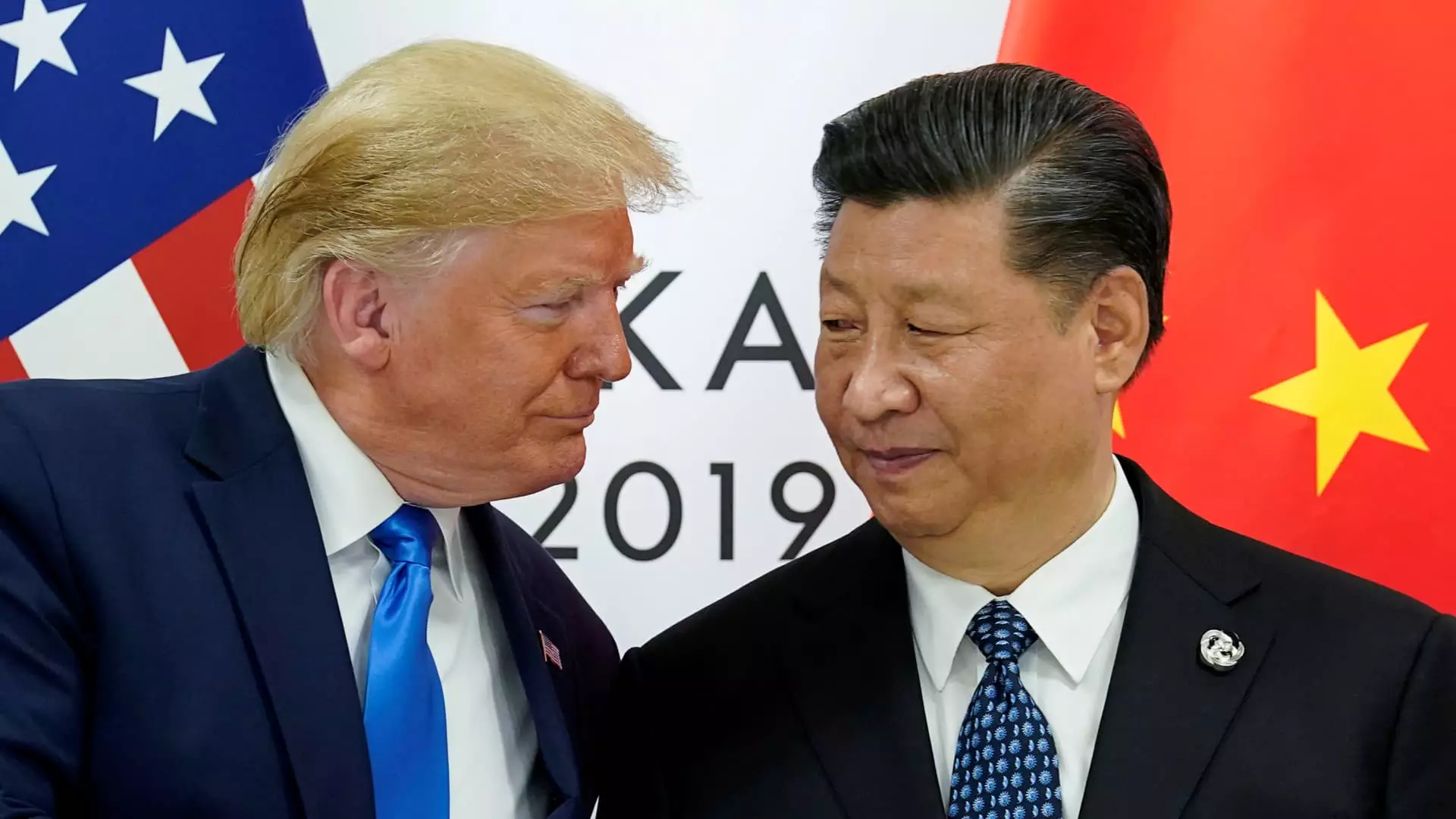In recent weeks, escalating tensions between the United States and China have resurfaced with the looming threat of increased tariffs on Chinese exports. U.S. President Donald Trump has indicated that he might raise duties on Chinese goods by 10%, effective February 1st. The implications of such tariffs could ripple through global markets, further complicating an already fragile economic landscape, as businesses and consumers brace for potential price hikes and diminished access to goods. This situation reflects not just a bilateral issue but a critical juncture for international trade as a whole.
In response to the U.S.’s tariff threats, China has reiterated its intention to engage in dialogue. The Ministry of Commerce has stated its readiness to engage with relevant U.S. authorities to address economic and trade concerns. Spokesperson He Yadong emphasized the importance of communication guided by mutual respect and aiming for a stable economic partnership. He expressed hope that both nations would work through their differences and foster a mutually beneficial cooperation framework. This tone of optimism suggests that China is actively seeking to avoid escalation and is committed to maintaining a cooperative relationship with the U.S. despite the rising tensions.
High-level communication between leaders is a vital component of international relations. President Trump and Chinese President Xi Jinping recently held discussions concerning trade and issues surrounding the popular social media app TikTok. While the specifics of their conversation were not disclosed, Xi’s statements about cooperation and the mutual benefits of their nations’ economic ties underscore the importance of enduring collaboration amidst adversity. The informal dialogues at such levels serve as a platform for stabilizing relations and addressing contentious issues proactively.
Despite China’s emphasis on cooperation, there is a firm acknowledgment of the need to protect its own interests. The balance between defending national interests and fostering collaboration with the U.S. is delicate. China’s commitment to a “win-win cooperation” approach highlights its willingness to negotiate while asserting its position firmly. This duality reflects a broader strategy in Chinese foreign policy, where maintaining sovereignty and economic integrity is paramount, even as they seek to engage with international partners.
Regardless of the potential tariffs, the current situation may serve as a catalyst for a broader discussion on U.S.-China relations. While a 10% increase may seem moderate compared to previous figures, the psychological impact on markets and investor confidence remains significant. The ongoing negotiations surrounding tariffs, the potential sale of TikTok, and other economic considerations will continue to evolve. Both nations face a critical opportunity to redefine their relationship through dialogue, collaboration, and a commitment to navigating their complex interdependencies.
While challenges persist, the recent communications suggest that both China and the U.S. recognize the necessity of dialogue. Navigating the turbulent waters of international trade demands an emphasis on mutual understanding and strategic cooperation, which could ultimately lead to a more stable economic future for both nations and beyond.

